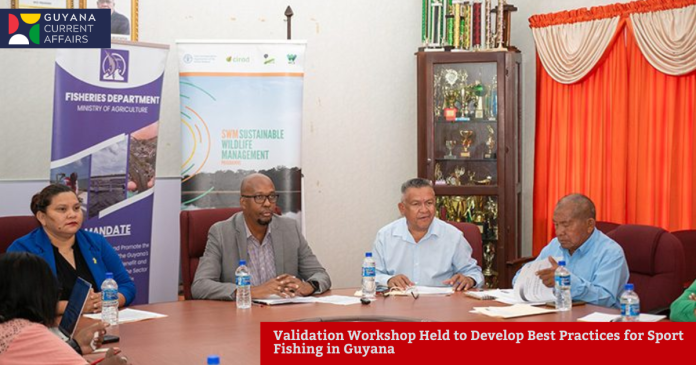Stakeholders from across Guyana’s fishing, tourism, and conservation sectors gathered this week for a landmark validation workshop aimed at crafting best practices for the country’s rapidly growing sport fishing industry.
The workshop, held in Georgetown, brought together government officials, environmental experts, indigenous community representatives, and business leaders to review and refine draft guidelines designed to ensure the sustainable development of sport fishing. The initiative is part of a broader national effort to balance economic growth with environmental stewardship and community empowerment.
During the session, participants discussed key issues such as catch-and-release protocols, habitat protection, licensing requirements, and community involvement. Special emphasis was placed on safeguarding Guyana’s unique aquatic biodiversity, including prized species like the arapaima, while creating opportunities for local livelihoods and eco-tourism.
“We want to position Guyana as a premier destination for sport fishing, but we must do so responsibly,” said one official. “By working together, we can protect our rivers and fish populations for future generations, while also supporting economic development in rural and indigenous communities.”
Representatives from indigenous villages shared their experiences managing community-led sport fishing ventures, highlighting the importance of traditional knowledge and benefit-sharing arrangements.
The outcomes of the workshop will inform the finalization of a comprehensive set of best practices, which will be adopted by stakeholders and integrated into national policy. The guidelines are expected to enhance Guyana’s reputation as a world-class sport fishing destination, attract more international visitors, and ensure that the industry grows in harmony with the environment.
As the workshop concluded, participants expressed optimism that the collaborative approach would lead to a vibrant, sustainable future for sport fishing in Guyana.


